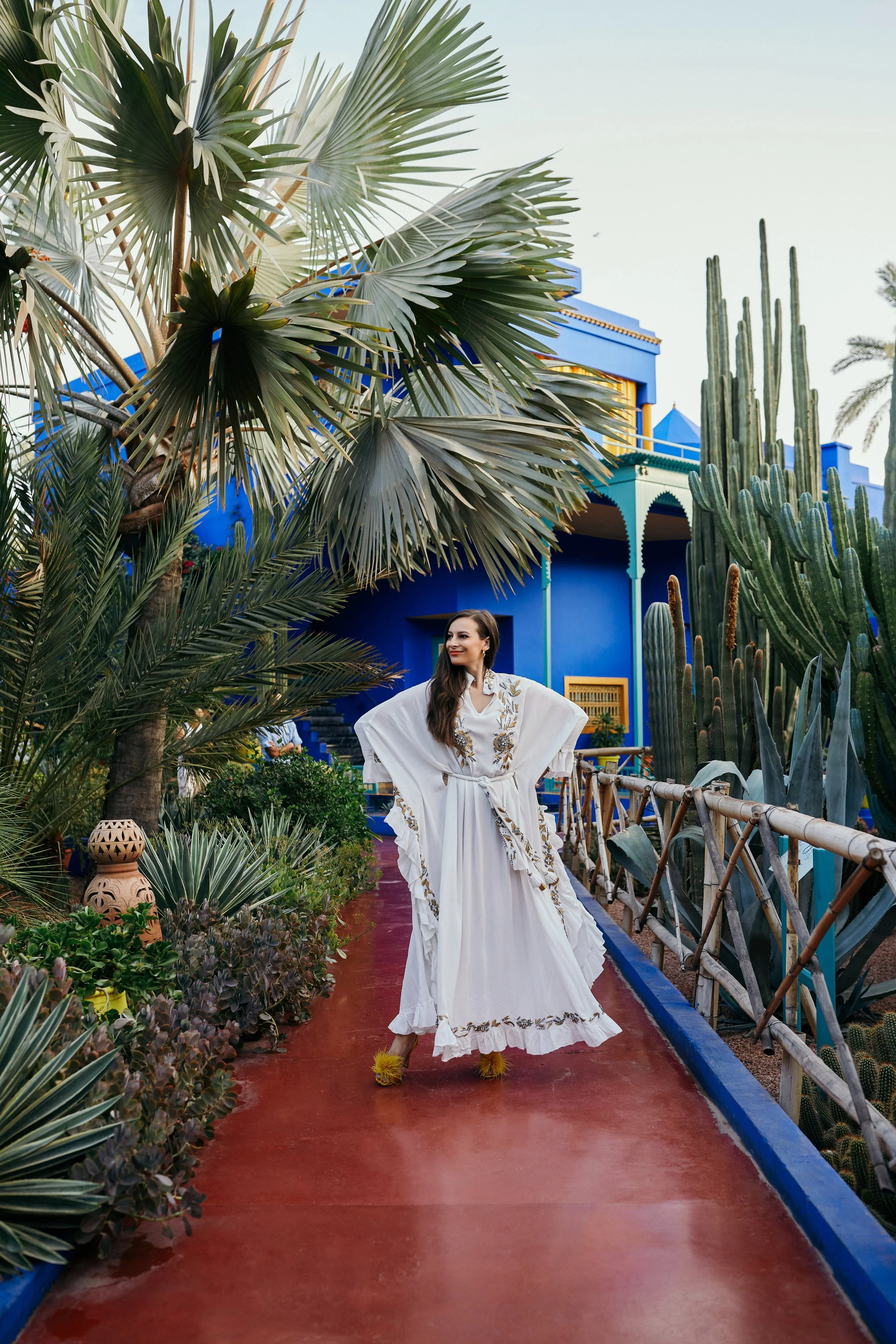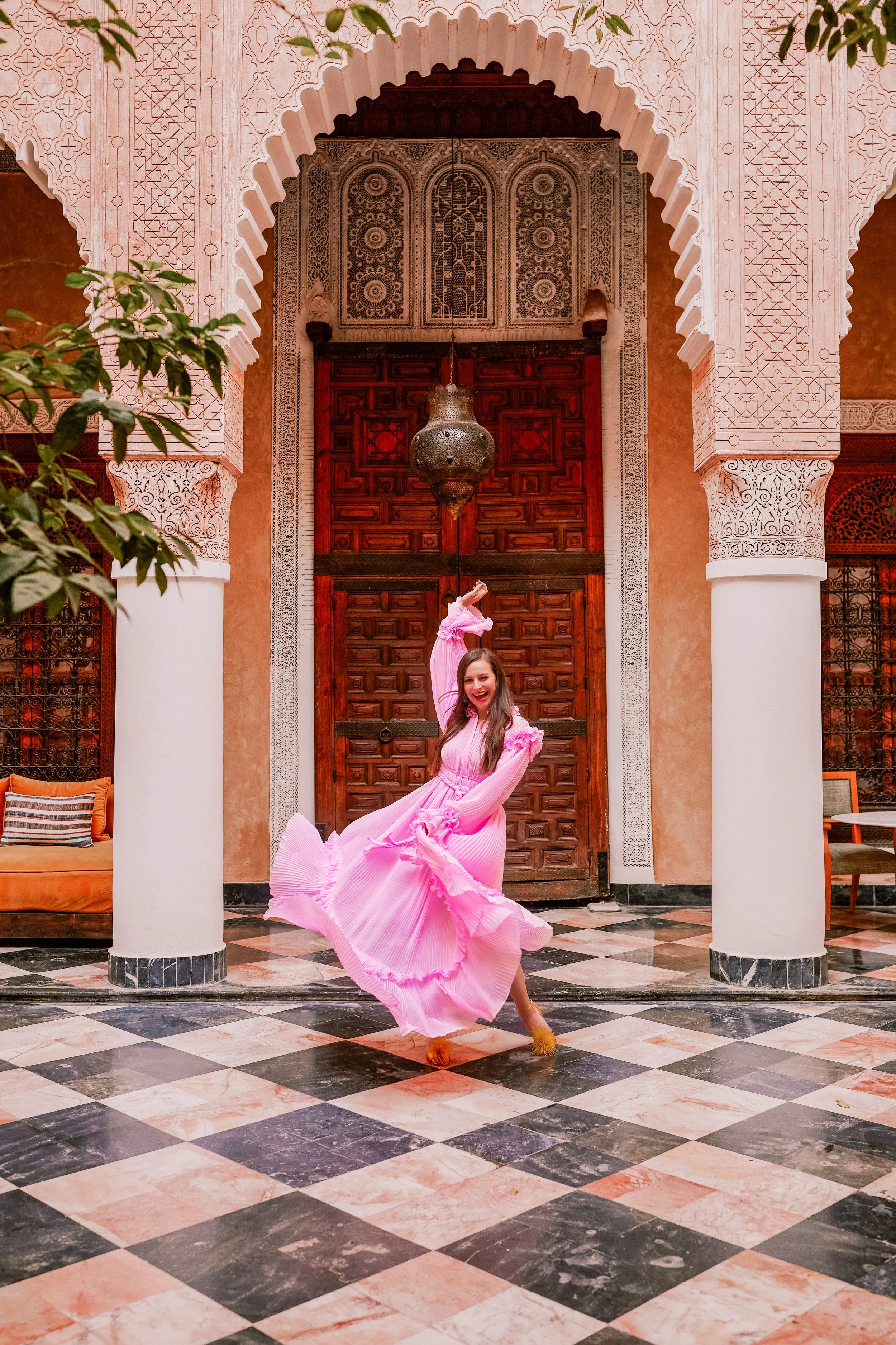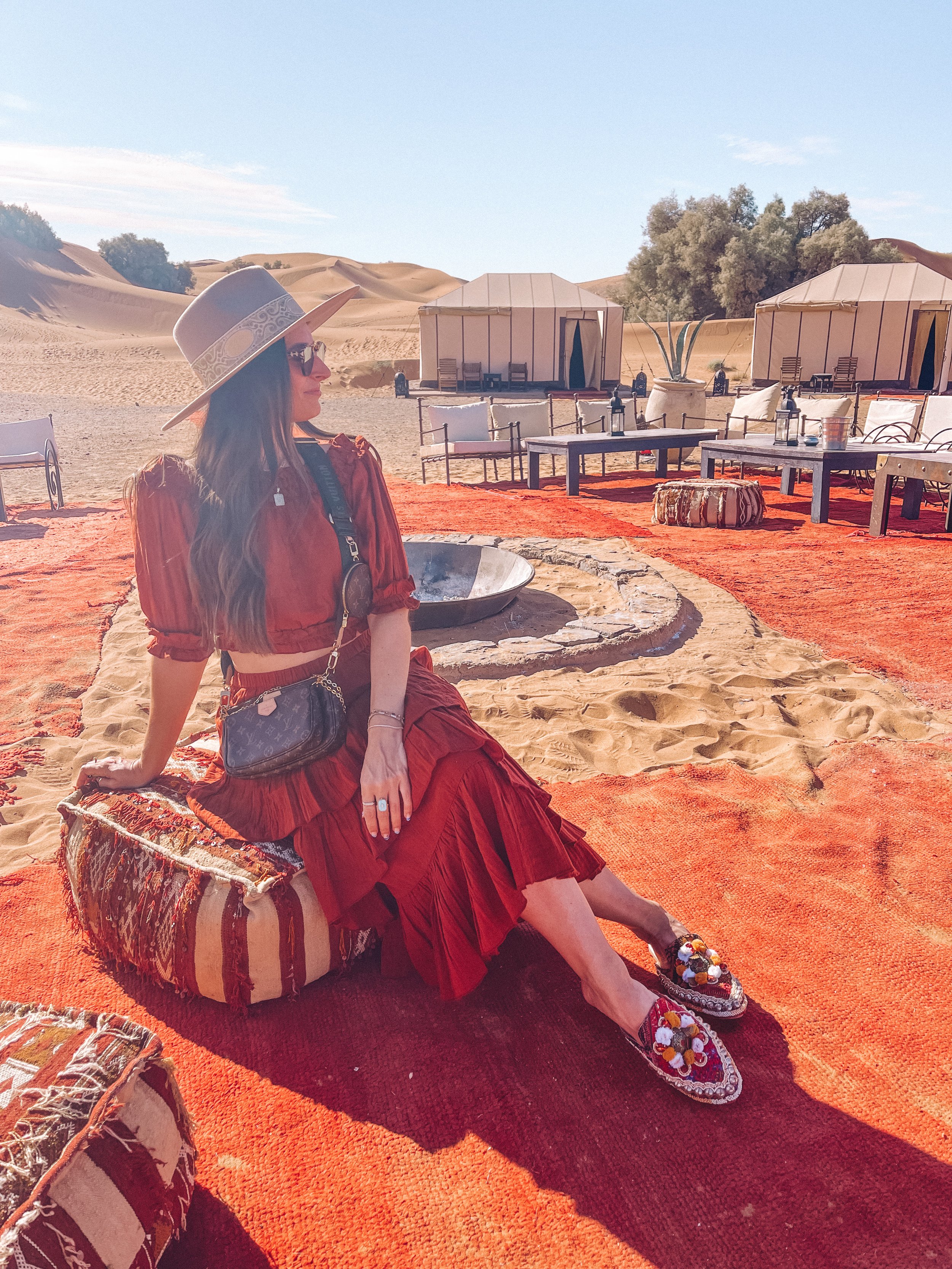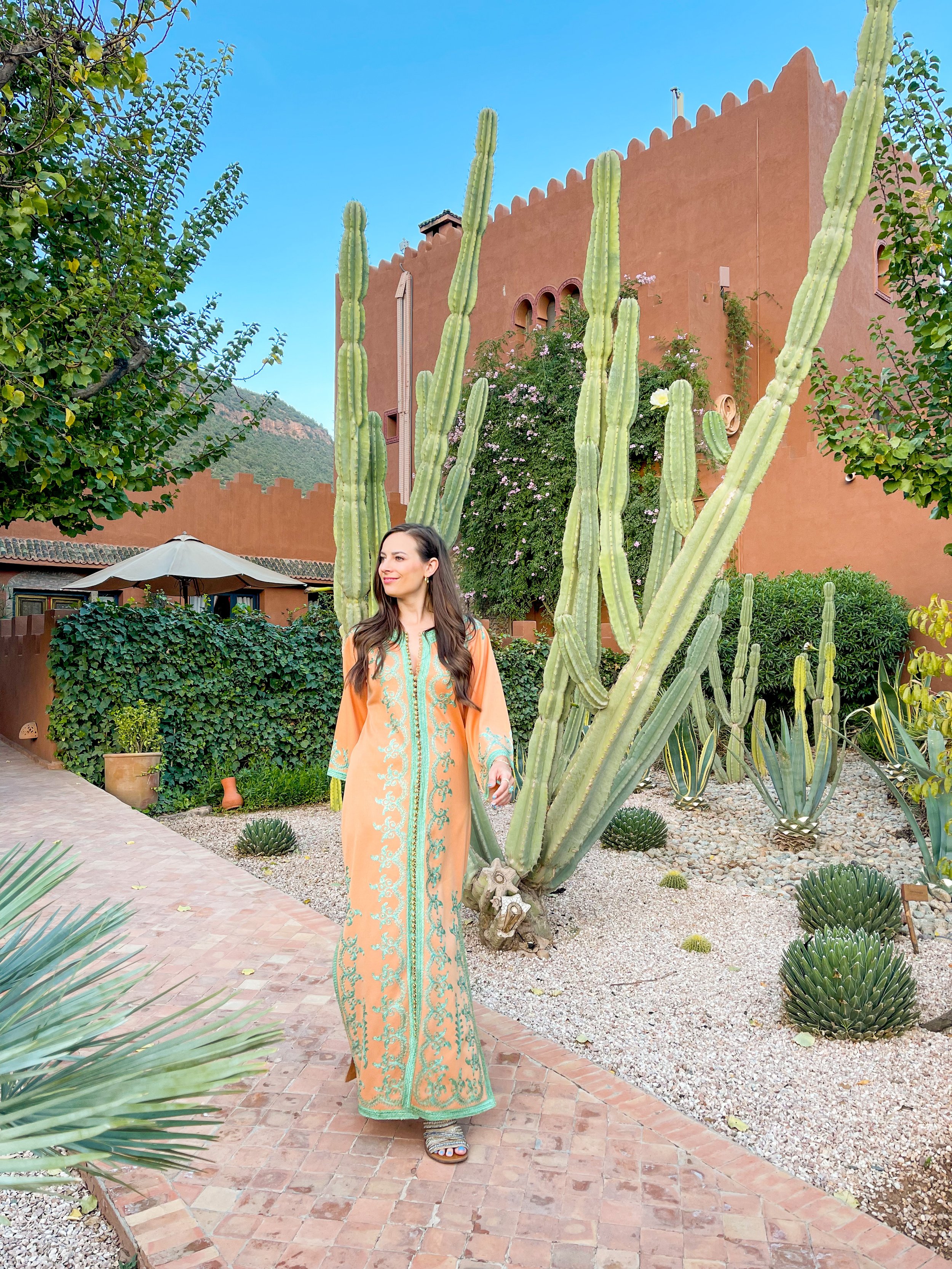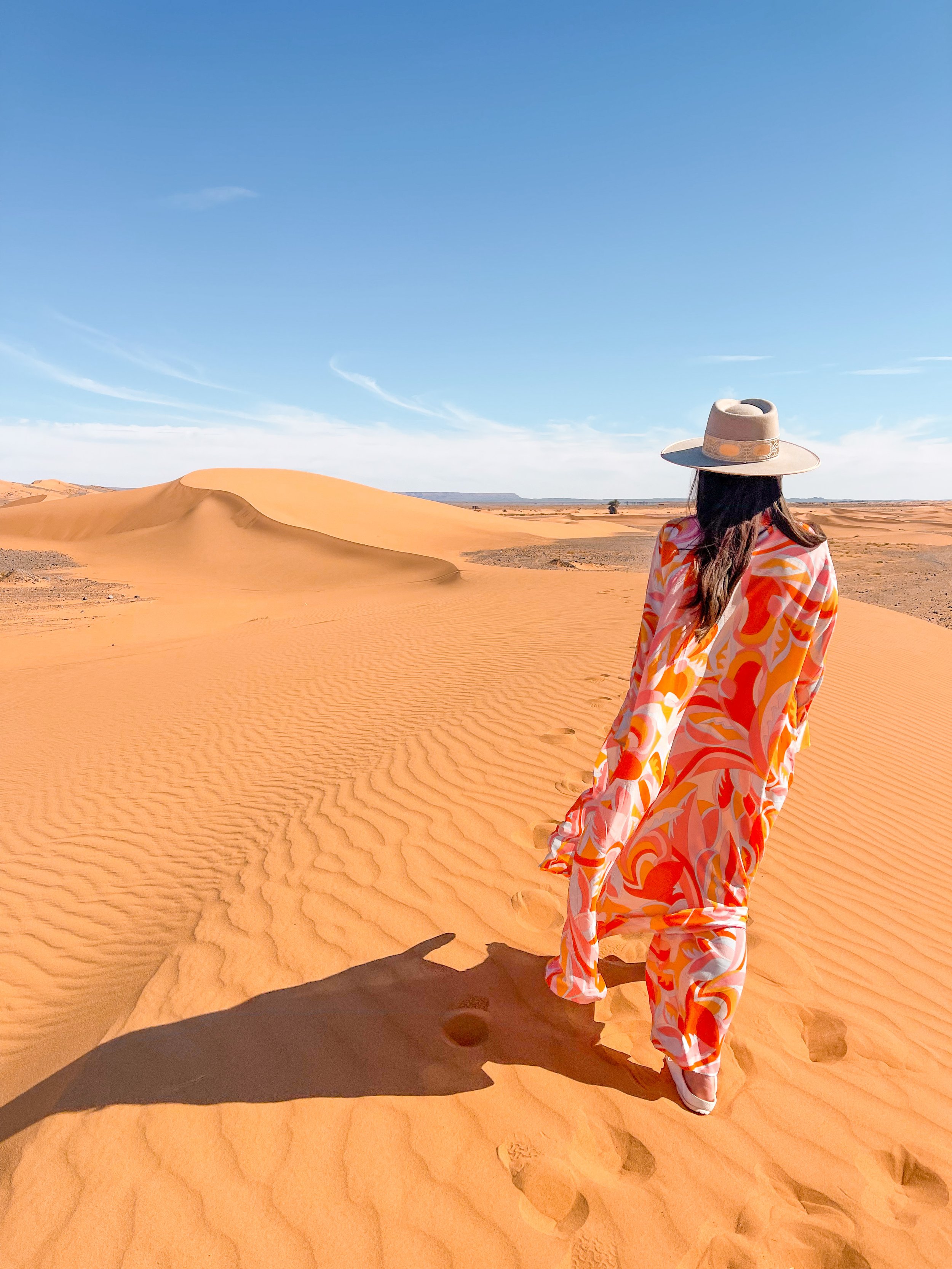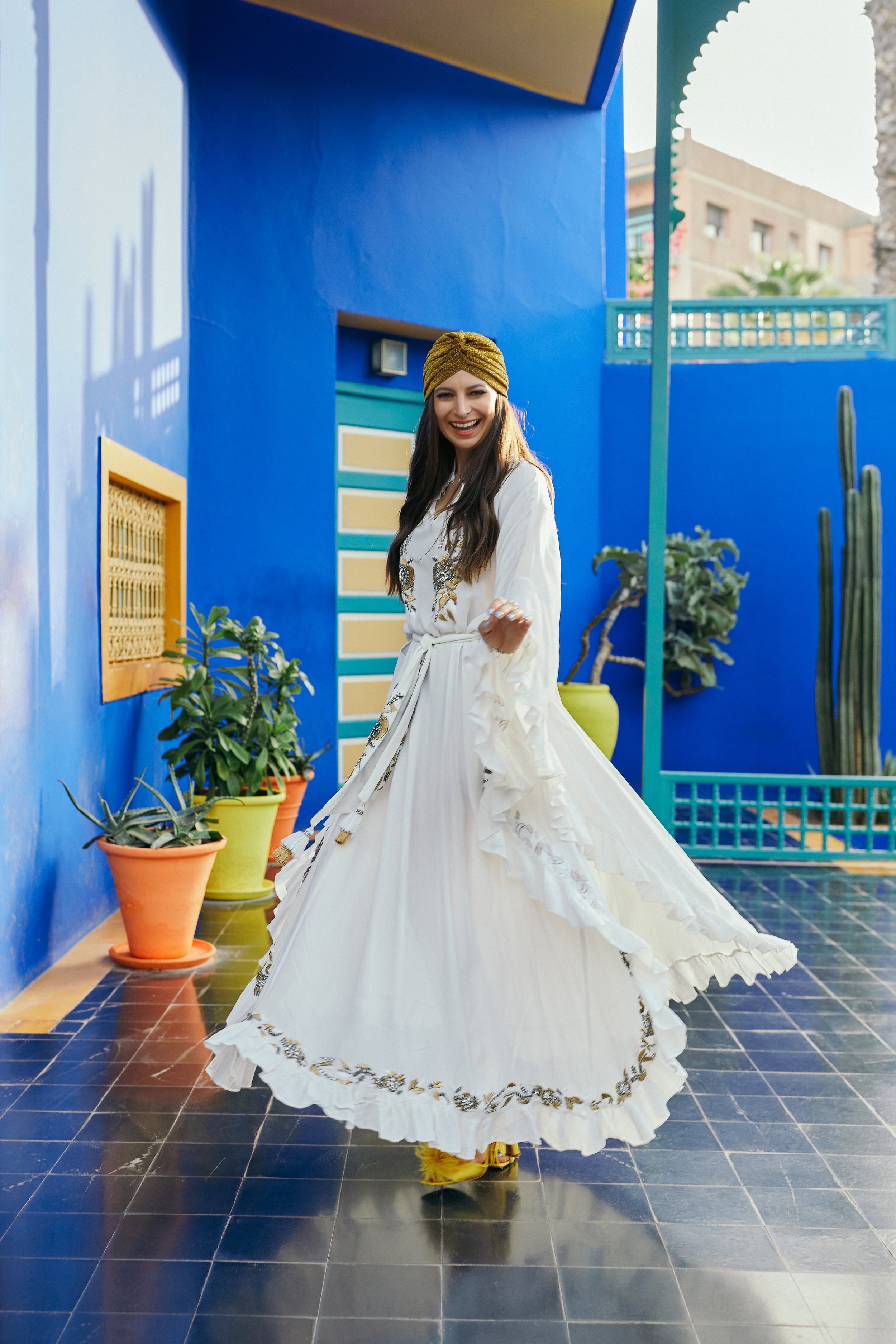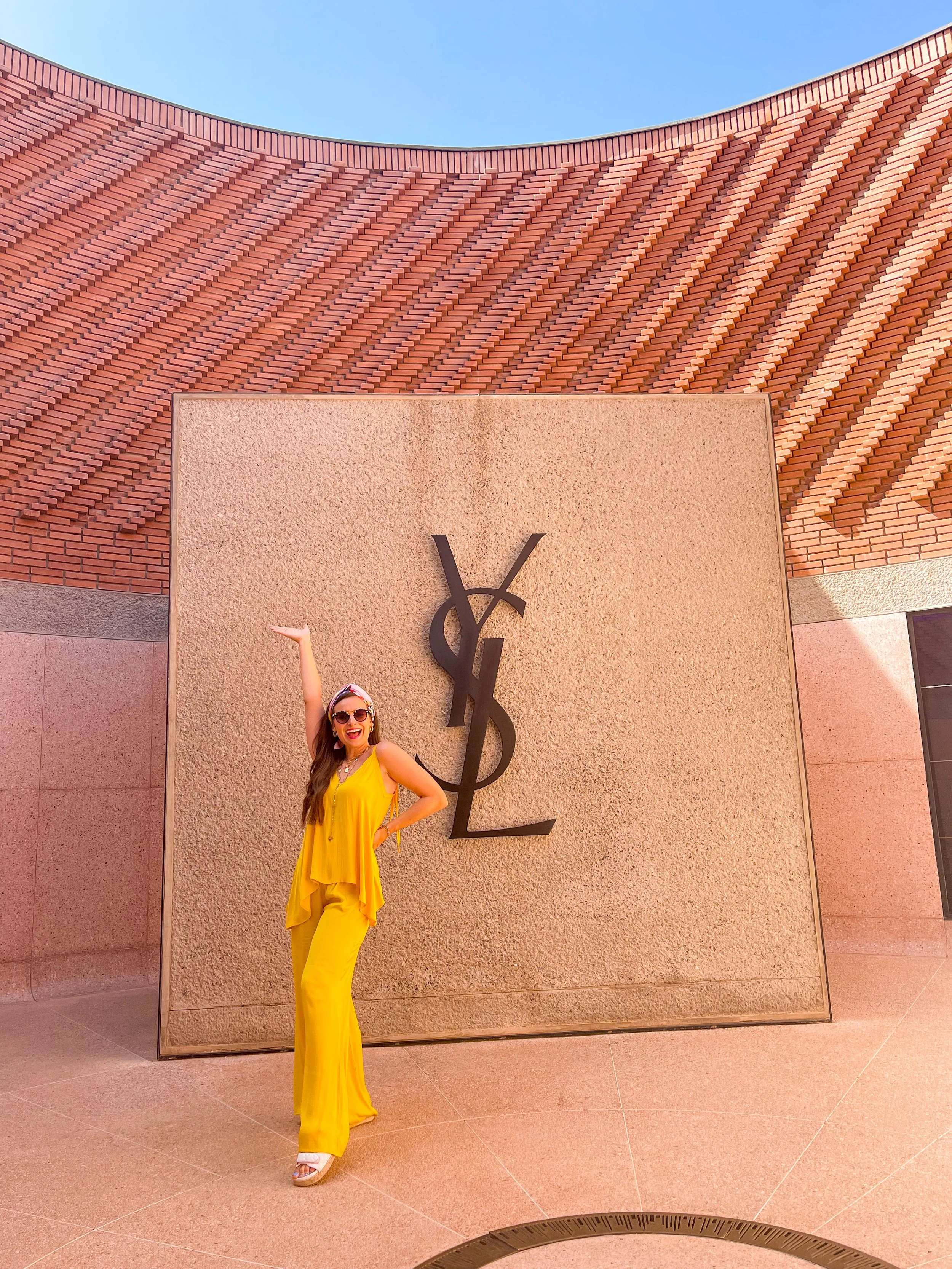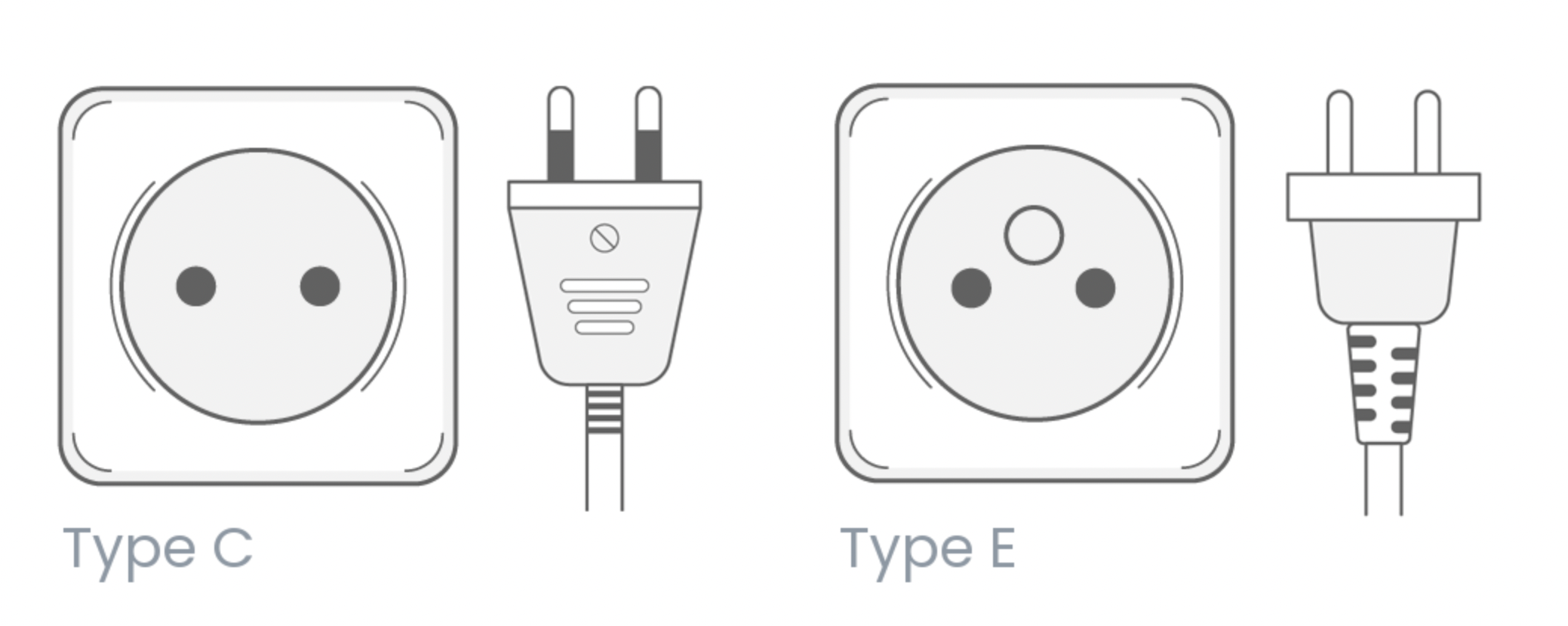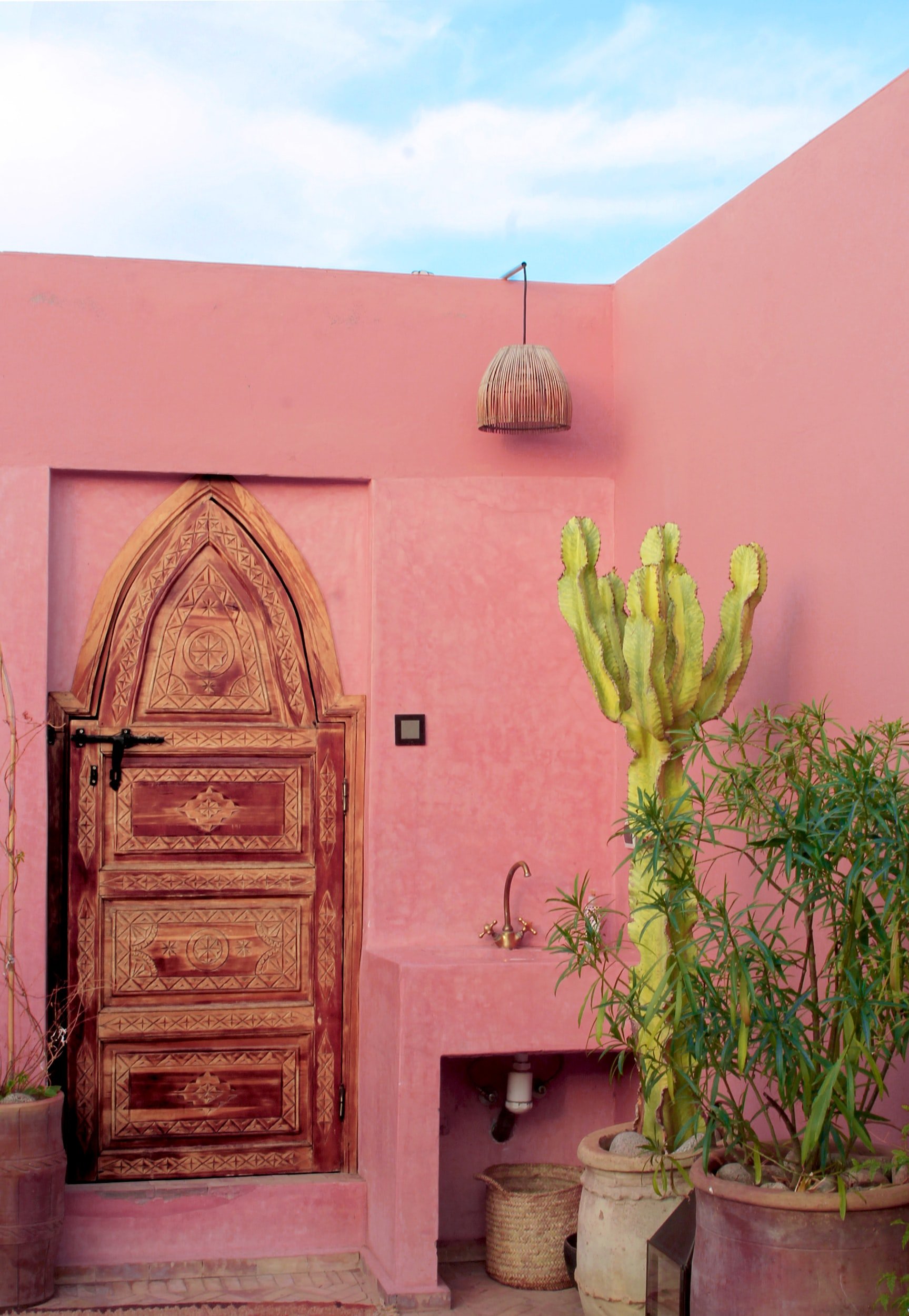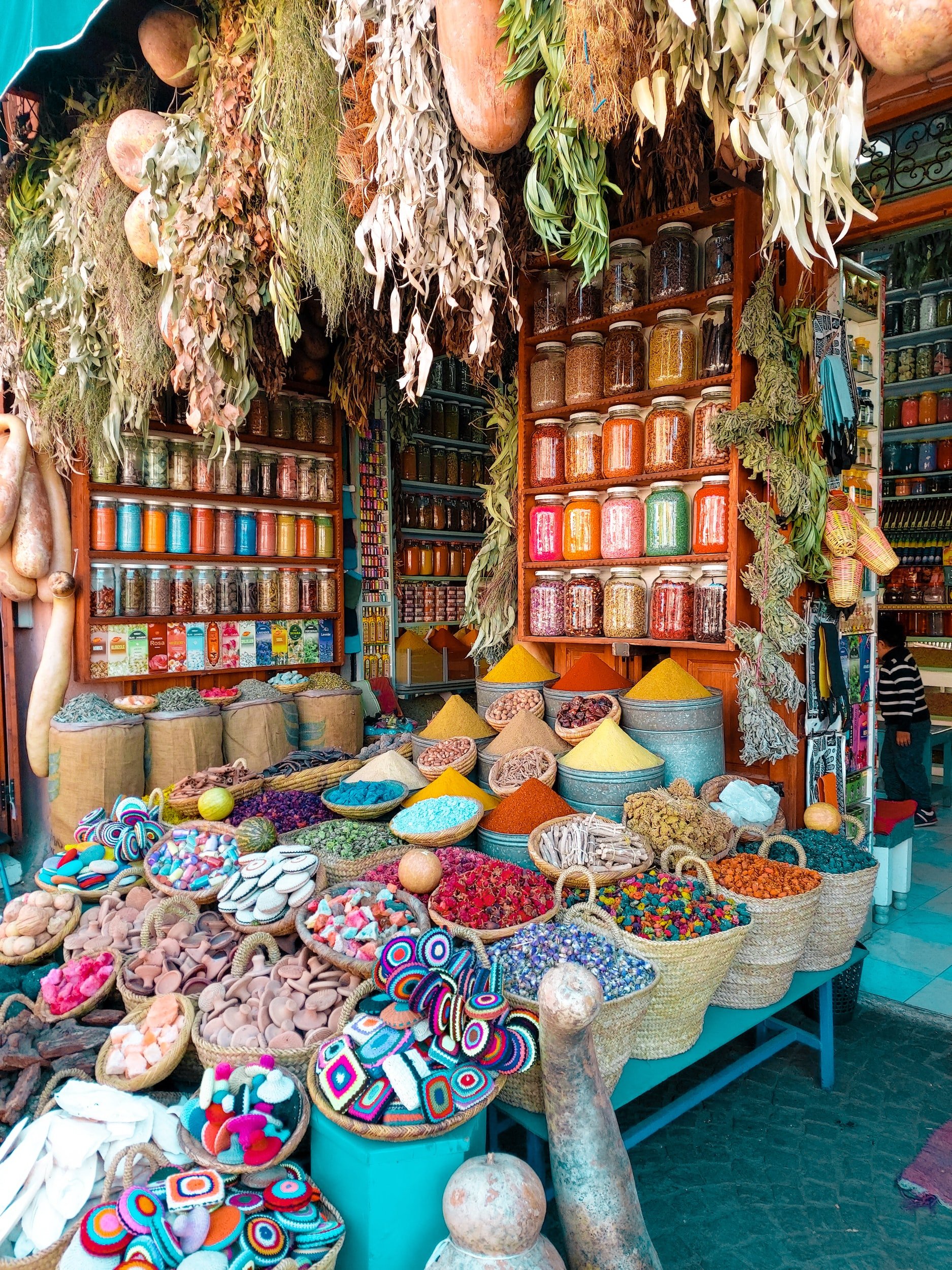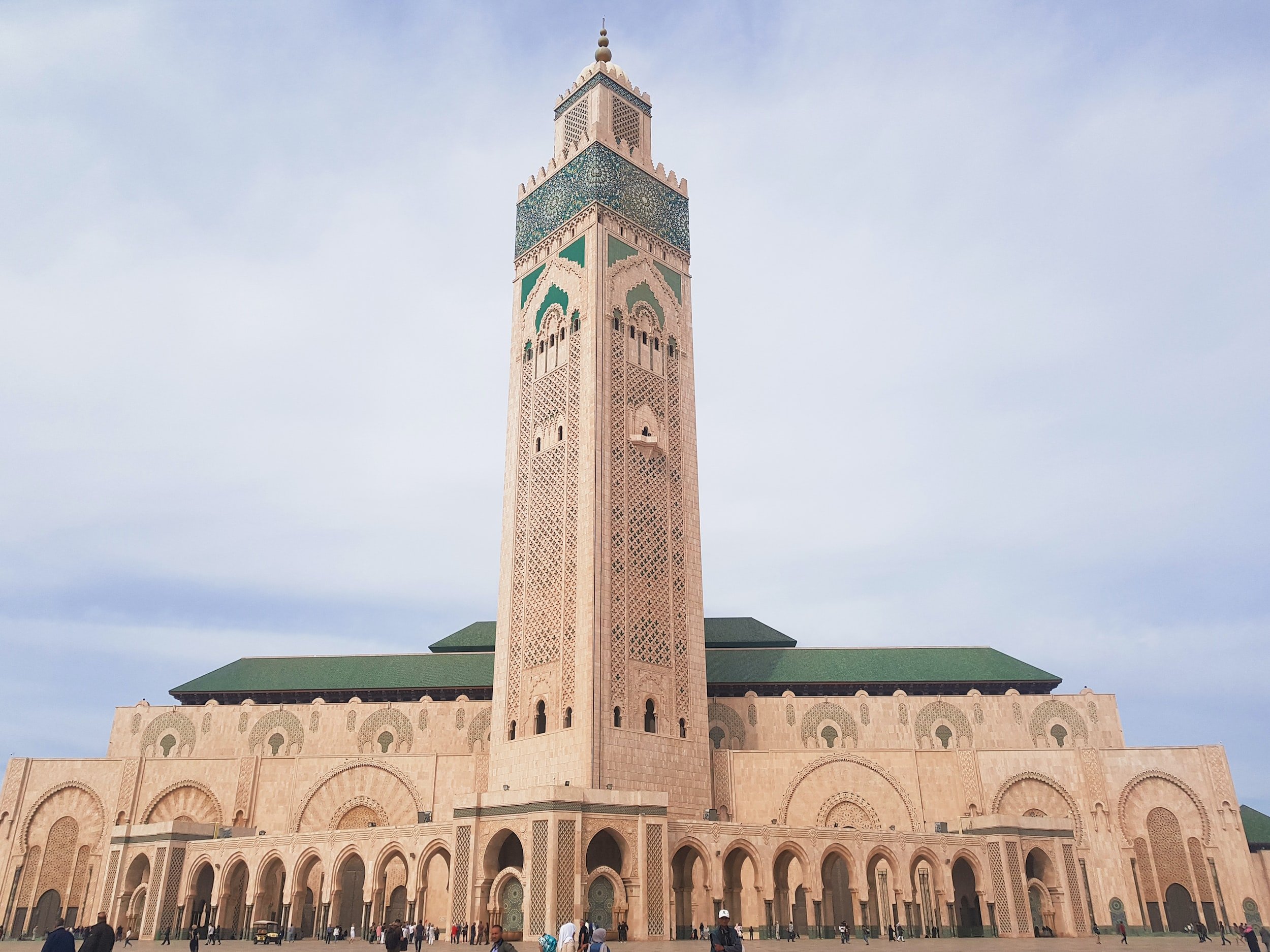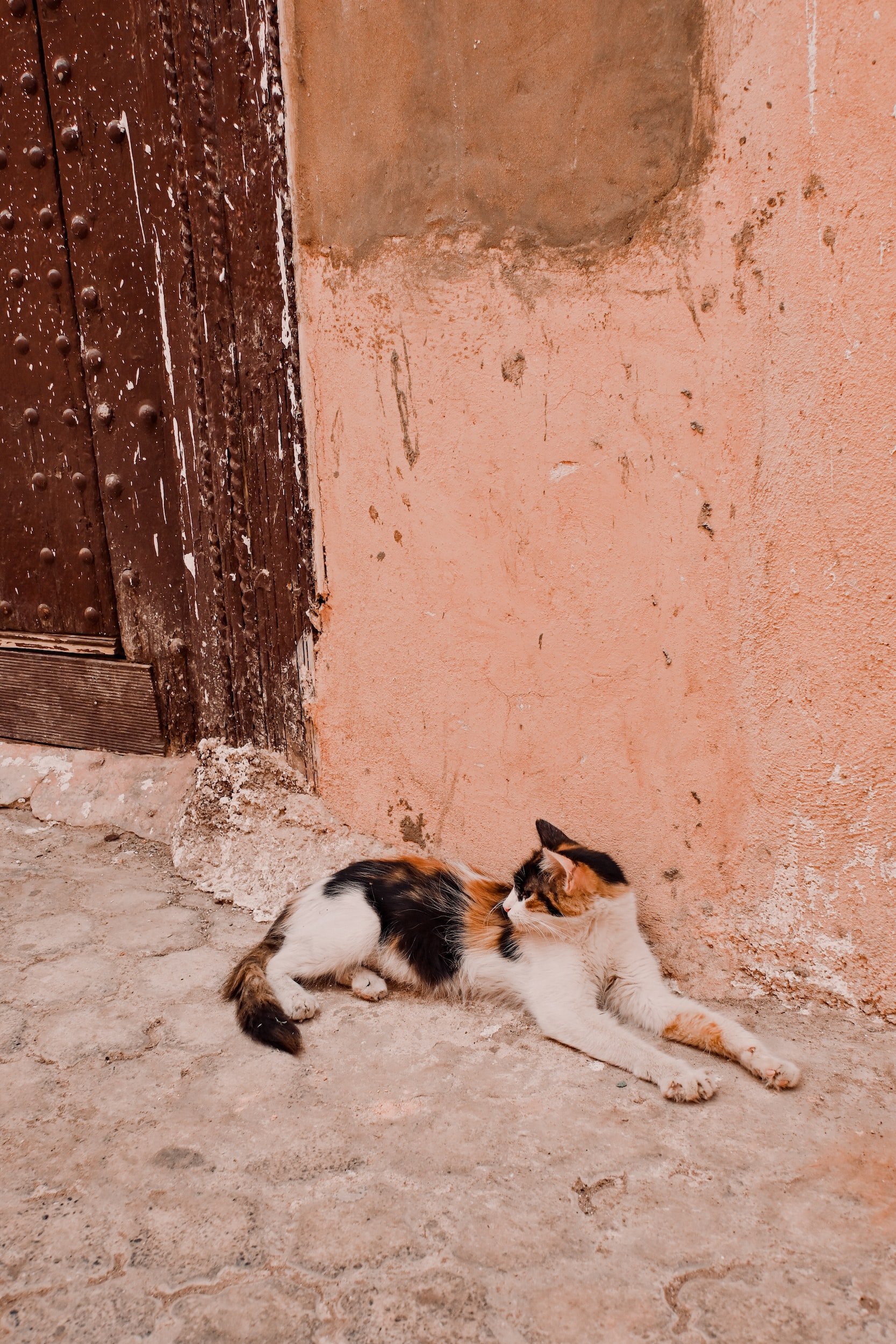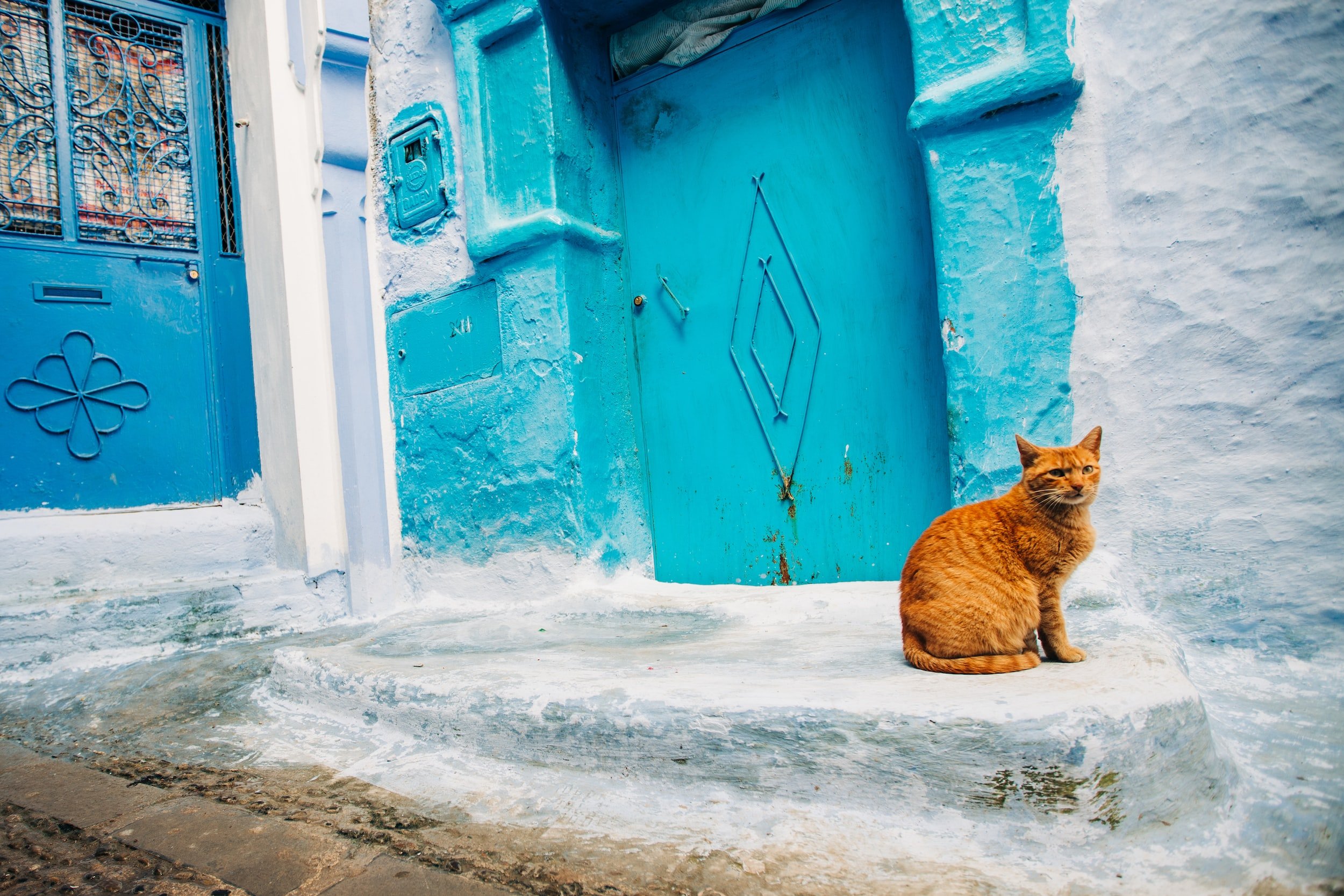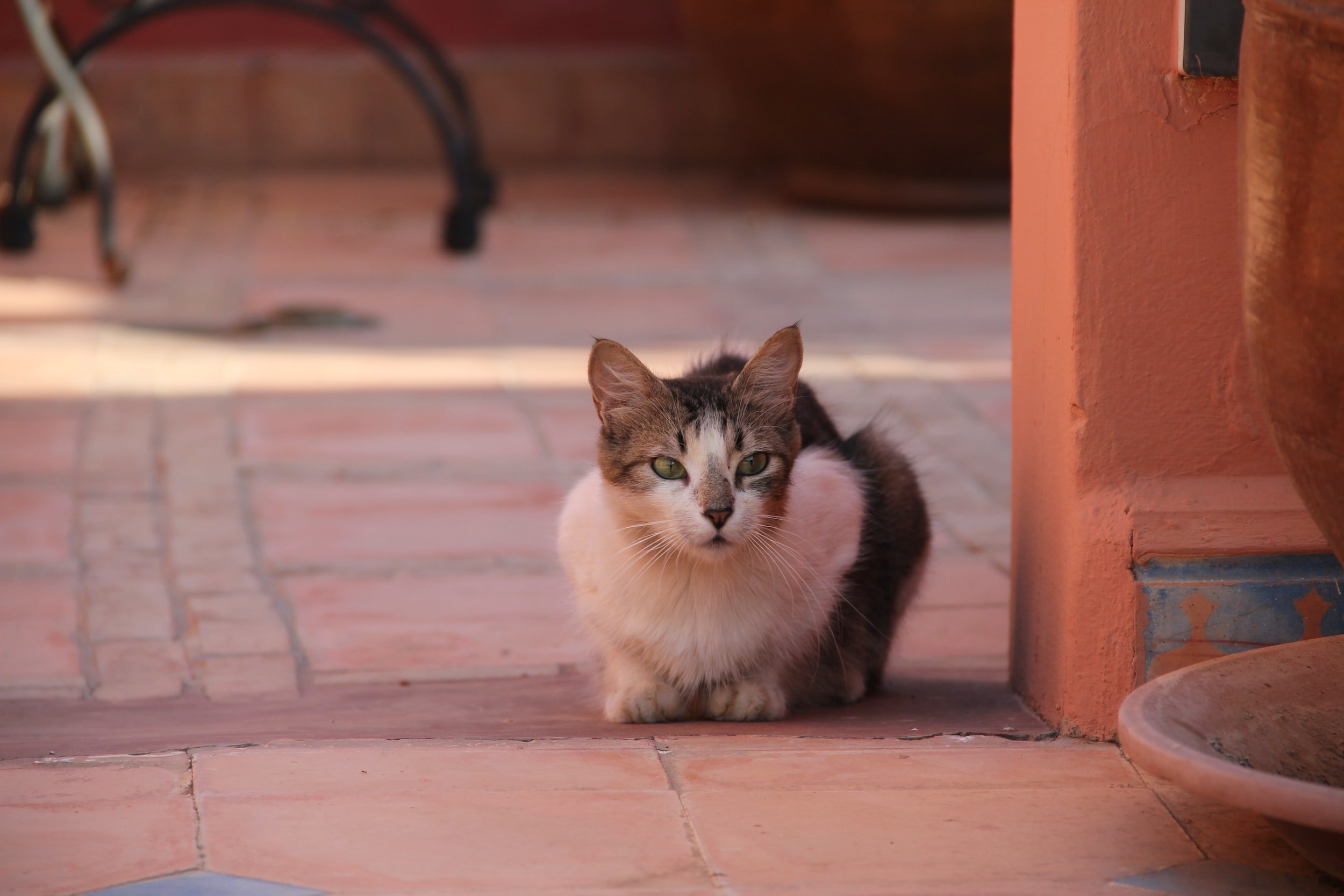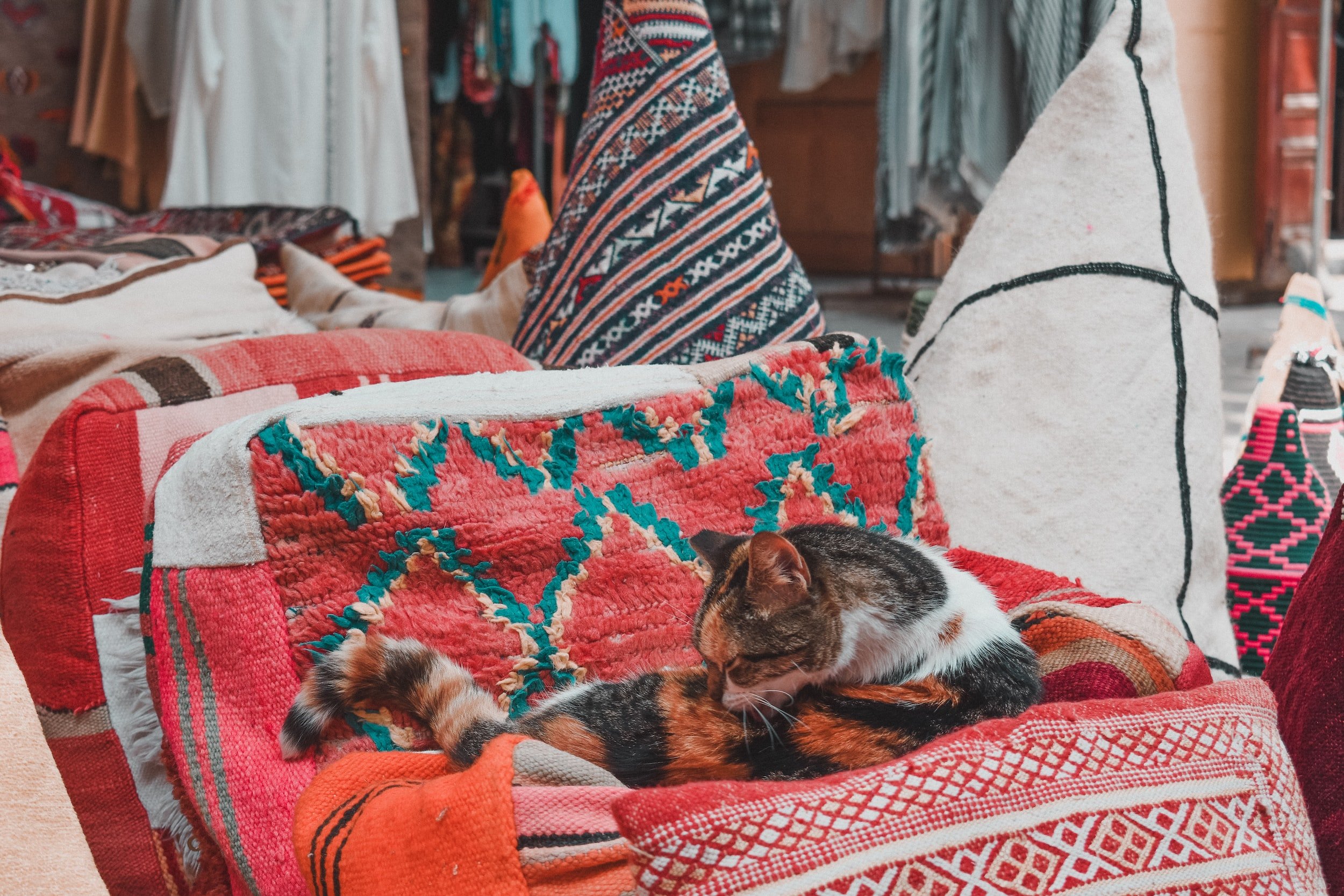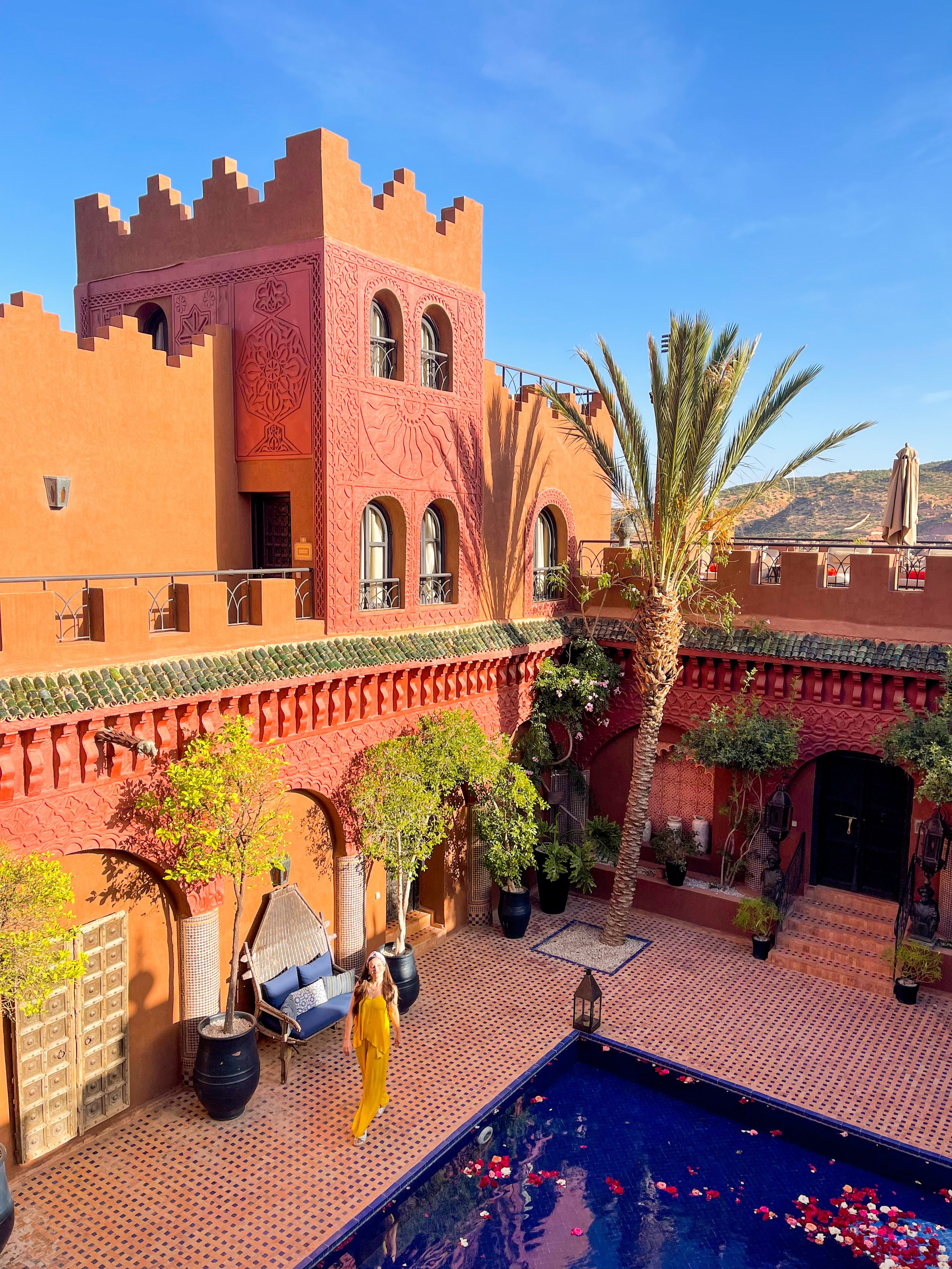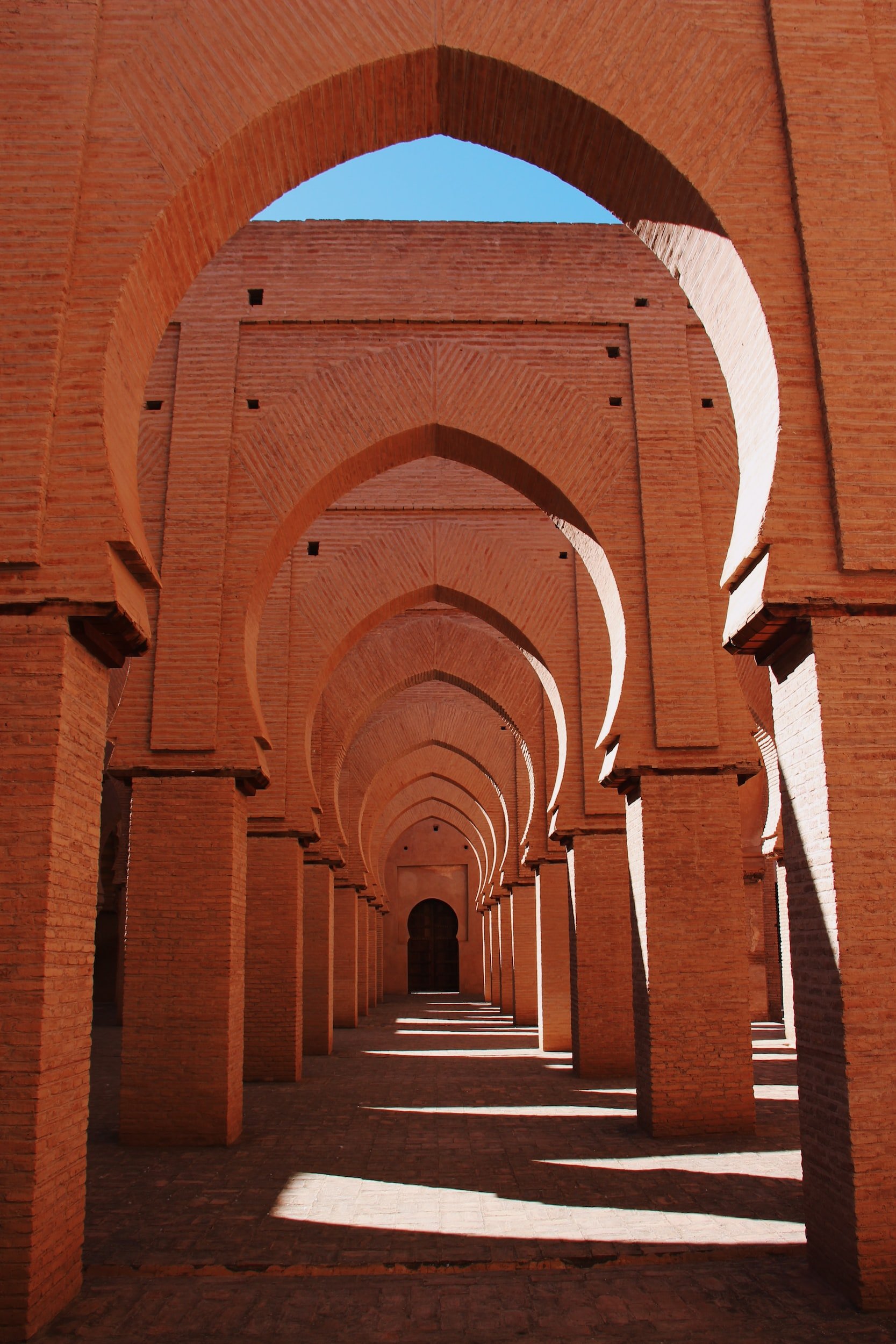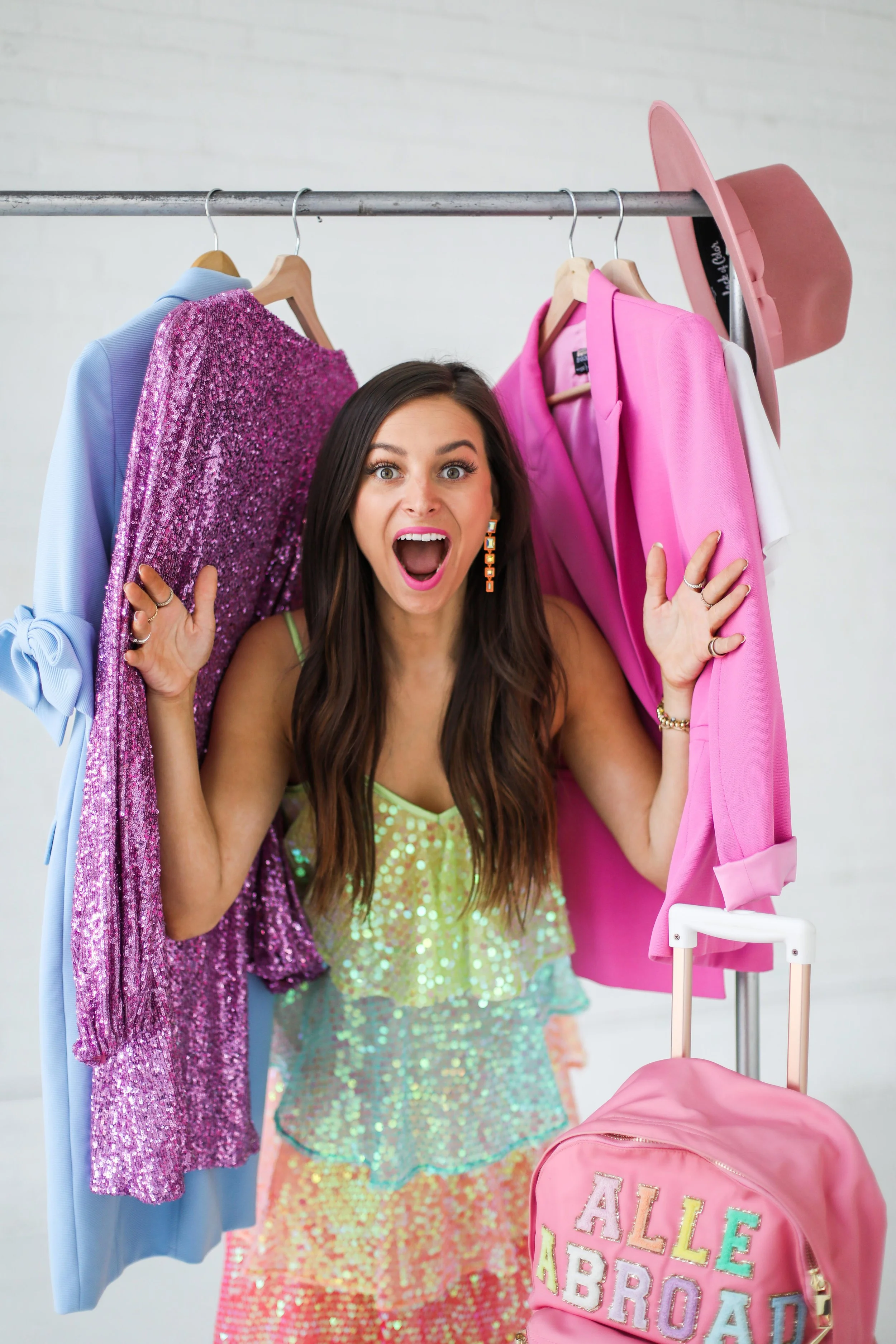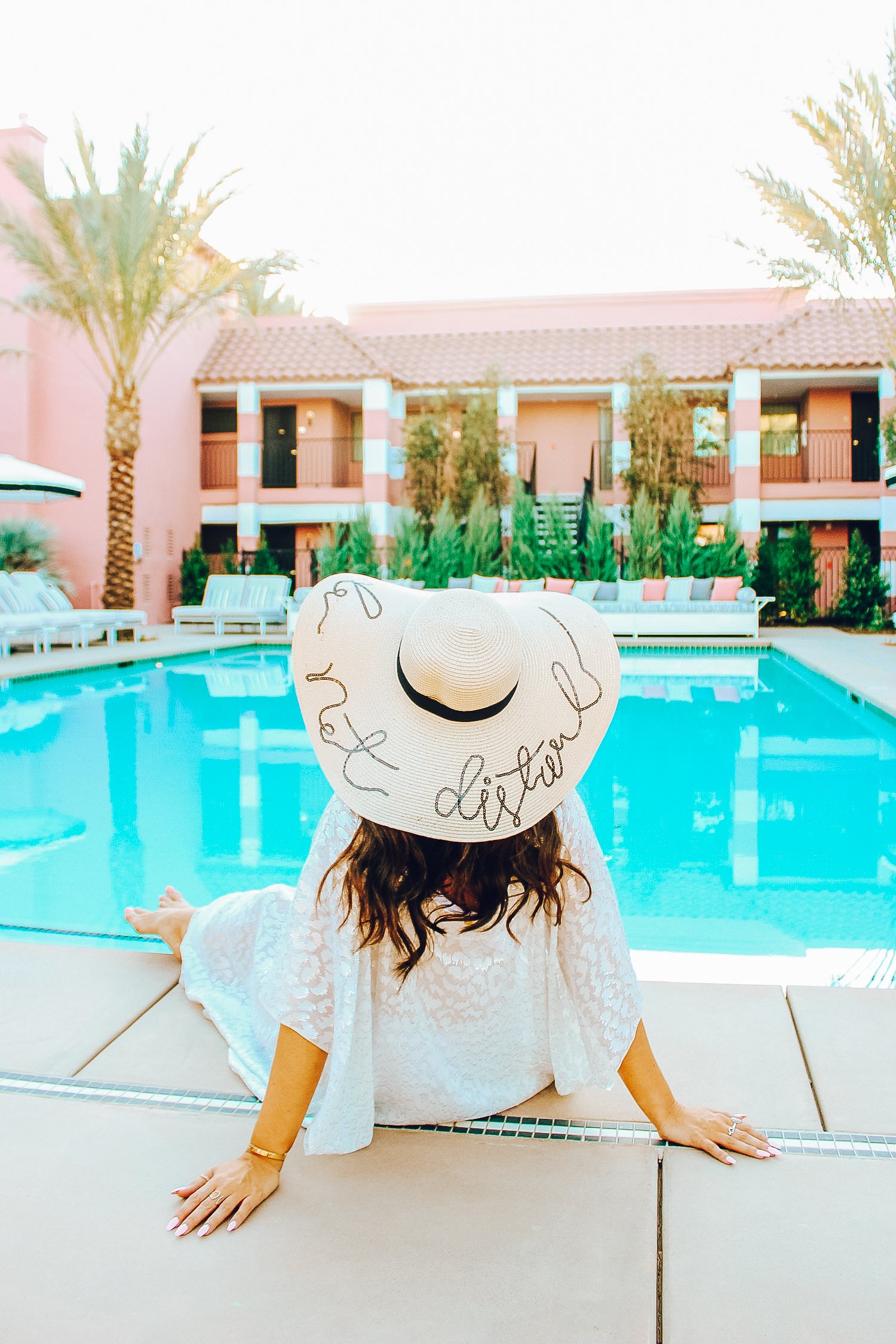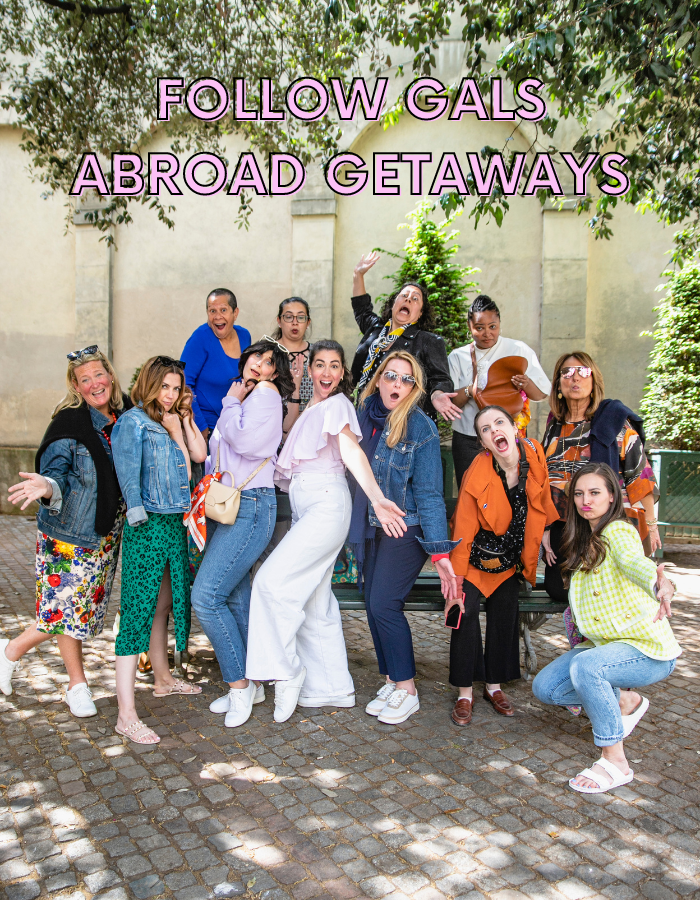What You Need to Know Before You go to Morocco
/For many travelers, Morocco sits at the top of their must-visit list, and it’s not hard to see why.
The beauty of Morocco is that it truly has something to offer all types of travelers.
Adventure seekers will get their thrills trekking North Africa’s tallest mountain range - the Atlas Mountains - and heading out into the majestic Sahara Desert
Architecture and art lovers will swoon over the museums & intricate craftsmanship in the Madrasas.
And if you love interior design, home decor and shopping in general… be prepared to bring an extra suitcase home with all your treasures.
Morocco seems to be one of the top countries many visit when they’re ready to take the leap out of European destinations and into a destination with less Western influence.
That’s what Morocco was for me. I first visited while I was studying abroad in London and hopped across on a short flight following a weekend in Spain. Since then I’ve returned in 2022 to plan our Gals Abroad Getaways Morocco trip & will be there hosting our trip May 2023.
Morocco is not a country for the faint of heart or a country you decide to visit on a whim. The type of traveler that will enjoy Morocco most is the kind of traveler that is able to go with the flow, keep an open mind and laughs things off rather than sits and stews.
Unless you’re prepared to experience ALL of what Morocco has to offer you might be sorely disappointed.
Lucky for you, that’s what I’m here for. Here’s some of my top travel tips that will help you get ready for your trip to Morocco
PACKING TIPS FOR WOMEN
DRESS WITH RESPECT
One of the number one questions women tend to ask when visiting Morocco is - what should I wear? The answer is, it depends on when and where you’re visiting.
That said, you'll be happy to know that there really isn't a dress code in Morocco. In cities like Marrakech, you'll see women in everything from shorts to burkas. Locals dress in a wide variety of ways and do not expect visitors to dress as they do.
That being said, it is always a good idea to dress more modestly than you may at home. As a good rule of thumb cover your legs past your knee, avoid plunging necklines & keep your shoulders covered if possible. Your best friend will be a loose scarf to drape around your shoulders when needed.
Trust me, it's easier than you may think to remain fashionable and feel comfortable all while still respecting local norms.
Anything loose & flowy + full coverage/lightweight will be PERFECT
Don't forget to have a jacket for the night once the sun goes down
Scarves & wraps will be your new BFF
A versatile dress/jumpsuit to go day to night
You can never have enough linen tops & pants
Don’t forget a swimsuit - Morocco has some of the most epic pools and you certainly don’t want to miss out. Most hotel pools are private so you can opt for a one-piece or a bikini depending on your comfort level
ESSENTIALS:
A sunhat // to help block the rays will be SO important (just be sure to find one that isn’t too thick and will make your head sweat
A light scarf (or a few) // I always pack at least one scarf on any trip but in Morocco, you’ll definitely want a few with you. They’re PERFECT for covering your shoulders or your head if you’re not wanting to draw attention! Plus when the sun goes down they’re great as a shawl.
A great day bag to carry everything // I recently discovered the perfect bag that is both practical and stylish
Sunglasses // pretty self-explanatory here haha
These specific Berks // I swear by these and wear these OFTEN when I travel
WHAT TYPE OF PLUG DO I NEED
For Morocco, there are two associated plug types, types C and E. Morocco operates on a 220V supply voltage and 50Hz.
If you are visiting from the USA you will need both a Voltage Converter & International Travel Adapter.
This is the one that I've traveled all around the world with and I think it's fantastic because I can charge my laptop, phone, camera, apple watch, etc. all in one place.
It might also be nice to have one of these as a backup too.
WHAT’S THE MONEY SITUATION?
HAVE CASH HANDY & MAKE SURE YOU HAVE THE CORRECT CHANGE
The Moroccan dirham is a closed currency, which means you can’t buy it freely outside the country.
AKA YOU CAN ONLY GET LOCAL CURRENCY WHEN YOU'RE IN MOROCCO, NOT BEFORE.
Generally, you’ll need cash for marketplaces, small shops, as well in more rural locations. You should be able to use your credit card or debit card at all of our hotels, restaurants, and malls.
An easy rule of thumb is to take off one 0 at the end to roughly know how much you're paying in dollars (Currently 100 DH = 9.76 USD)
Break 100 and 200 DM notes when you can.
Vendors prefer small notes, such as the 5, 10, and 20 DM.
FINDING ATMS CAN BE HIT OR MISS OUTSIDE OF BIG CITIES
ATMs are available in the airport & in all large cities. ATMS tend to be more difficult to find once we leave major cities like Marrakech when you head into the desert, so make sure you get what you need before head into more rural areas.
BE PREPARED TO HAGGLE BUT DON’T OVERDUE IT
Read pretty much any article on the internet and it will tell you to haggle your face off when it comes to negotiating prices on souvenirs. I would challenge that bit of advice. While certainly negotiating is part of the Moroccan culture, please be mindful of the fact that the average Moroccan lives on $4 a day, and most of the goods you're haggling about are handmade.
If you have assessed its quality and you can afford to travel to Morocco and shop for fun, it's certainly a better deal than what you might be paying back home and not worth haggling over a few dollars. The exception to this rule is when you're buying in bulk - I always ask for a discount when buying multiple of the same thing.
WHAT’S THE TIPPING CULTURE?
Tipping is standard practice in Morocco but where, when and how much can vary.
Most importantly, you’re going to need to tip in cash. It's rare that you will be able to tip on a credit card, so always have some cash on hand.
Who should you tip? A good rule of thumb (anywhere in the world) is to tip anyone that provides you with good service. This could be restaurant wait staff, staff in riads or hotels, porters, guides and drivers.
How much you should tip will vary depending on the situation:
Cafe or small restaurant – a few dirhams for the server (round up to the whole number in most cases)
Higher end restaurants – 10% is customary to tip though adjust based on service
On a tour - If you’re on a day tour tipping 5-10% of the price of the tour is a good rule of thumb (I always tip more than 10% in these situations if I loved the guide)
A guide for a multi day tour - Generally speaking $20 - $30 per person per day is a good rule of thumb depending on how you felt their service was. This tip should be given at the end rather than on each day.
A driver for a multi day tour - $15 - $20 per person per day (best to give this at the end of the tour)
Hotel porters - if someone is helping to bring your bags to your room a tip of 20 dirham is suggested
DO YOU NEED TO HIRE A GUIDE?
GUIDE VS NO GUIDE
I have visited Morocco both with a guide and without one and I feel very strongly about hiring a guide - especially if you want assistance navigating the maze of medinas in Marrakech and Fes. Not only are they incredibly helpful in directing you, if you have a good guide, they will be able to impart INCREDIBLE knowledge that you might not otherwise know if you’re walking around on your own.
All that said, there is truly a lot to be said for a good guide vs a mediocre guide (again, I’ve had both).
My best advice for finding the right guide would be to work with a travel advisor who can point you in the right direction, ask the Riad/hotel you’re staying at or get a recommendation from a trusted friend who has worked with that same guide.
BE AWARE OF THE GUIDE’S CUT
Many local guides have built relationships with many different stores, and they are most likely getting a cut of the sales. Don’t be fooled when they say they are trying to help you haggle to get the best price, because often times they aren’t.
If there is a place in mind that you want to go, be firm, even if they say they don’t have a relationship there - they should still take you to the places you want to visit.
I had a guide take me to 3 other rug shops I did not want to visit to before finally taking me to the place I asked to go to in the first place. I knew he did not have a relationship with the shop owner to get his cut but at the end of the day I knew this place I asked to visit had the type of rugs I wanted to buy and the other spots didn’t. I was willing to wait him out and play the long game but if you’re short for time, be clear and firm with where you want to go.
some things to be aware of
FRIDAYS ARE HOLY DAYS
Morocco is a Muslim country and Fridays are holy days (kind of like Sundays are for Christians). As such, Fridays are typically the days when families and friends gather and stay at home and because of this, a lot of cafes, stores, and restaurants are not open on Friday until the late afternoon.
LEARN SOME LINGO
Arabic and Berber are the main languages spoken in Morocco, but we have found that in Marrakech many people also spoke English although French (and Spanish in Northern Morocco) are more common.
If you have a local guide with you for the duration of your time in Morocco they will be able to assist with any translation.
That said, if you speak a little bit of French that is certainly a plus & Google Translate is always helpful in case you find yourself in a communication bind.
VISITING MOSQUES
Generally speaking, if you’re planning to visit a Mosque while in Morocco, you might be disappointed (unless you are Muslim). The only Mosque that is open to non-Muslims is the massive Hassan II Mosque in Casablanca.
THE CALL TO PRAYER
This is something you’re going to need to used to. The call to prayer (adhan) happens 5 times a day, with the first one being very early in the morning. Pretty much if you’re staying in the Medina in any Moroccan city you’re going to hear the call to prayer.
My best advice is to embrace it (kind of the point of visiting a foreign country) and after a few days you’ll most likely not even notice it. But if it’s waking you up too early - here’s some earplugs.
ASK BEFORE TAKING PHOTOS
As a general rule, it’s always best (and simply polite) to ask before you take a photo of someone in any country you’re visiting. In Morocco it’s an entirely different ball game as many Moroccans do not like to have their picture taken.
In asking around I’ve learned that the most common reason why is referred to as “aniconism in Islam” which is a proscription against the creation of images of sentient beings (humans and animals).
Basically, many Moroccans believe that if they are in a picture, it creates an image of a human being which is not permitted in the Quran.
ALL THE CATS
You are going to see MANY cats everywhere in Morocco. As a crazy cat lover I find it hard not to love on the kitties anywhere in the world that I travel. That said, it may be hard to see so many cats without a home or even with an injury or illness.
In most places we visited I found that the Moroccan people found their own way to look after the street kitties by feeding them or offering water. I always try to save up my scraps of food where I could. That said, if you are highly allergic to cats, be sure to bring your allergy meds.
BUYING SPICES
This might seem like a random tip but if you’re looking to purchase spices to bring home, make sure that you buy them from a Berber Pharmacy. The spice stands you’ll see throughout the souks where the spices are beautifully stacked tall are moreso created for aesthics rather than quality.
When you buy your spices from Berber pharmacies their spices are kept in sealed containers and aren't exposed to air pollution like the stalls in the souks.
The spice towers do make for a great photo though (just be sure to ask the owner if you can snap a photo - they may ask for a few coins in exchange which is common).
TIPS FOR STAYING HEALTHY
CAREFUL WHAT YOU DRINK
It’s a good rule, in general, to stick to bottled water in Morocco as the water contains different bacteria that your body may not be used to.
Don’t forget to use bottled water when you are brushing your teeth as well!
Hydrated is critical. Plan to bring oral rehydration packets (especially in the warmer months) - these are my favorite kind.
ALSO….I would strongly caution against drinking the fresh orange juice from any stand outside of the hotel you’re staying in (unless your guide says the vendor is reputable). Often vendors will inject water into the oranges before juicing them which could be big trouble for your tummy.
VACCINES
The CDC (Centers for Disease Control) recommends a number of vaccinations for anyone traveling to Morocco - click here to check the current list.
I always suggest speaking with your primary care doctor to not only get their input on which vaccines you need but also to ensure that the vaccines you have are up to date.
CREATE YOUR OWN MINI EMERGENCY KIT
Having a bag full of “just in case” medications will be the BEST thing you pack for a trip to Morocco to make sure all your bases are covered in case you fall ill. It’s for those illnesses in the middle of the night when you’re in a hotel room and have no access to any other medications.
The contents will probably vary depending on what you need most, but here’s what I’ve got in mine:
Acidil - homeopathic medicine that helps with Acid Reflux, Heartburn, Indigestion, and Upset Stomach
Nux Vomica - homeopathic medicine that helps with hangovers & super rich meals
Tylenol or other pain relievers
a few days of other prescription medications you may need
I put all of this into a pouch like this one. I keep it small so that it can easily fit in a tote bag or backpack. Once you’re home, make sure to restock your pouch so you’ll be ready for your next trip.
If you are prone to a weak stomach, talk to your doctor about taking some probiotics before your trip. It’s also not a bad idea to have your primary care doctor prescribe you anti-diarrheal medication should you fall ill (consult your doctor on what’s best).
BRING TOILET PAPER WITH YOU EVERYWHERE
This is certainly something you have to get used to if Morocco is your first country you’re visiting that’s outside of Western Europe or North America.
Do not expect bathrooms to have toilet paper - many won’t. So it’s always a good idea to carry a pack of tissues with you when you use the bathroom. Also make sure to have hand sanitizer too.
You’ll also notice that public bathrooms will have attendants collecting a small fee so be sure to carry small coins to pay (unless you’re traveling with a guide in which case they will take care of that fee for you).
SAFETY AS A WOMAN IN MOROCCO
I do not believe in making blanket statements when it comes to the safety of any country. Whether you feel safe or not is an entirely subjective thing, and is certainly influenced by various factors like your gender, sexuality, the color of your skin, previous experiences etc.
I am a straight, cis, white woman which means travel for me comes with plenty of privilege but also some unique concerns.
Generally speaking, I felt comfortable traveling in Morocco (especially when accompanied by a male guide which was often the case). I found that a lot of the cat calls I experienced on my first trip to the country when I traveled without a guide did not occur. Even so, when I ventured out on my own to the Medina to do a bit of shopping, I truly did not feel bothered (in fact I met a few really cool shop owners that I still stay in contact with today).
Full disclosure: I rarely walked around in the Medina after dark - only when returning from dinner. I was mindful of covering up so that I was not drawing too much attention to myself.
At the end of the day, you need to determine your own comfort level and work to stay within your own safety boundaries. If traveling to Morocco on your own might give you pause, consider joining a group trip like the ones I offer or others (there’s plenty to choose from).
MAKE IT CLEAR THAT YOU ARE NOT A DUMB TOURIST
This has a lot to do with how you carry yourself - walk with purpose, your head held high & *try* to not look lost (even if you are).
Scams in Morocco happen because a local clocks a tourist looking lost and BINGO they assume you are a dumb dumb foreigner who doesn’t know your right from your left in their country. AKA an easy target.
WATCH YOUR POCKETS
Pickpocketing can happen, especially near major tourist attractions anywhere in the world and Morocco is no exception. Be aware of your surroundings & belongings, especially when exploring without a guide.
PRO TIP: I never take all of my cards or money out with me all at the same time. I only take what I need and leave the rest in the safe in the hotel room just in case my wallet was to get stolen. Wherever you go, watch out for your personal belongings and it's best to keep your most important items in a zipped bag vs in a pocket.
DON’T TRUST A MAN ATTEMPTING TO GIVE YOU DIRECTIONS
One of the most common scams in Morocco (especially in the Medina) is men offering to give directions or take you where you need to go. It’s often that a man will walk up to you and tell you “that way is closed” or “do you need directions” with the intention of taking you on a twisty turny path only to ask for a tip at the end and leave you no where closer to where you intended to go.
It’s best to not ask anyone for directions in the Medina unless they are a shop owner (I would opt for a larger shop that sells quality rugs or furniture) or a woman. OR rely on google maps, a hired guide &/or your hotel/riad to assist you with directions.
***Also be aware of women soliciting Henna Art on the streets***
If you want Henna, best to have it done by a reputable source to be sure of the quality as most street artists use a fast drying solution that can irritate your skin (this can be done at your hotel/Riad or you can ask your guide where to go)
IF YOU FOUND THIS HELPFUL SHARE IT WITH A TRAVEL PAL!

